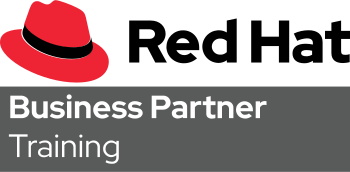Đào tạo chính hãng
Red Hat
Red Hat, Inc. là một công ty phần mềm Mỹ cung cấp các sản phẩm phần mềm mã nguồn mở cung cấp các nền tảng hiệu quả, có thể mở rộng và đáng tin cậy cho các ứng dụng của bất kỳ tổ chức nào. Các công nghệ của Red Hat cung cấp nguồn cho một tỷ lệ lớn các máy chủ lưu trữ các trang web và các dịch vụ dựa trên đám mây. Nhiều tổ chức đang tìm kiếm các chuyên gia được chứng nhận để giúp triển khai và quản lý hệ điều hành mã nguồn mở Red Hat của họ. Đạt được chứng chỉ Red Hat là một thành tựu hàng đầu trong ngành và đảm bảo tổ chức sẽ nhận được nhiều giá trị nhất từ việc triển khai Red Hat. Theo quan điểm kinh doanh, các khóa đào tạo Red Hat trang bị cho nhân viên CNTT các kỹ năng để ổn định cơ sở hạ tầng máy tính của họ và vận hành chúng hiệu quả hơn. Ở góc độ chuyên gia CNTT, các khóa đào tạo Red Hat sẽ giúp cá nhân tự tin khi bước vào lĩnh vực ảo hóa và quản trị đám mây. Trainocate cung cấp các khóa đào tạo thực hành Red Hat để nắm vững các công nghệ Red Hat hàng đầu trong ngành và thúc đẩy sự nghiệp CNTT.




